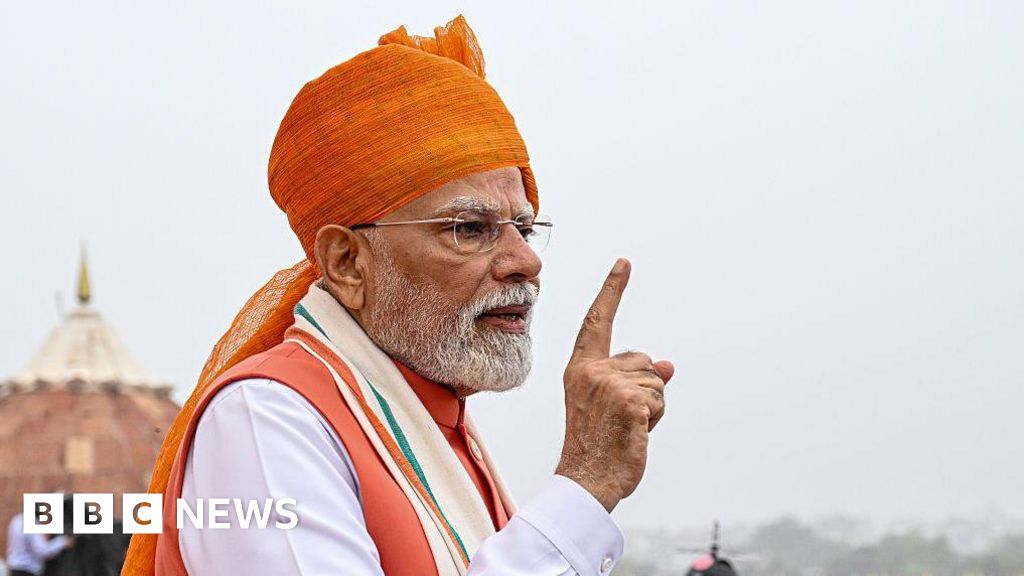Earlier this month, Indian Prime Minister Narendra Modi made a promise. He said that a Diwali gift in the form of a 'massive tax bonanza' was on its way for the common man and the millions of small businesses that power Asia's third largest economy. Wearing a bright saffron turban and addressing crowds from the rampants of Delhi's Red Fort during Independence Day celebrations, Modi also made a rallying cry for self-reliance, urging small shop owners and businesses to display 'Swadeshi' or 'Made in India' boards outside their stores.
'We should become self-reliant - not out of desperation, but out of pride,' he said. 'Economic selfishness is on the rise globally and we mustn't sit and cry about our difficulties; instead, we should rise above and not allow others to hold us in their clutches.' His comments are aimed at countering US President Donald Trump's 50% tariff rate on India effective from August 27, which threatens to disrupt millions of livelihoods across various sectors including textiles and agriculture.
Amid the challenges posed by these tariffs, Modi's message of making and spending in India has become increasingly urgent. Despite the stagnation of India's manufacturing sector within the GDP, tax reforms designed to put more money directly into the hands of consumers could help relieve some economic pressure.
Following a $12 billion income tax reduction announced in March 2025, Modi now seeks a comprehensive overhaul of India's Goods and Services Tax to simplify the existing tax framework. Experts suggest that this would have a significant positive impact on consumption patterns, crucial as India navigates the fallout from global trade tensions and tariffs.
Modi's tax measures may also lead to further interest rate cuts by the Reserve Bank of India, allowing for increased lending and stimulating economic growth as the country prepares for the festive season around Diwali. However, with the external economic environment remaining uncertain and negotiations between India and the US stalled, the path forward remains fraught with challenges.
'We should become self-reliant - not out of desperation, but out of pride,' he said. 'Economic selfishness is on the rise globally and we mustn't sit and cry about our difficulties; instead, we should rise above and not allow others to hold us in their clutches.' His comments are aimed at countering US President Donald Trump's 50% tariff rate on India effective from August 27, which threatens to disrupt millions of livelihoods across various sectors including textiles and agriculture.
Amid the challenges posed by these tariffs, Modi's message of making and spending in India has become increasingly urgent. Despite the stagnation of India's manufacturing sector within the GDP, tax reforms designed to put more money directly into the hands of consumers could help relieve some economic pressure.
Following a $12 billion income tax reduction announced in March 2025, Modi now seeks a comprehensive overhaul of India's Goods and Services Tax to simplify the existing tax framework. Experts suggest that this would have a significant positive impact on consumption patterns, crucial as India navigates the fallout from global trade tensions and tariffs.
Modi's tax measures may also lead to further interest rate cuts by the Reserve Bank of India, allowing for increased lending and stimulating economic growth as the country prepares for the festive season around Diwali. However, with the external economic environment remaining uncertain and negotiations between India and the US stalled, the path forward remains fraught with challenges.




















